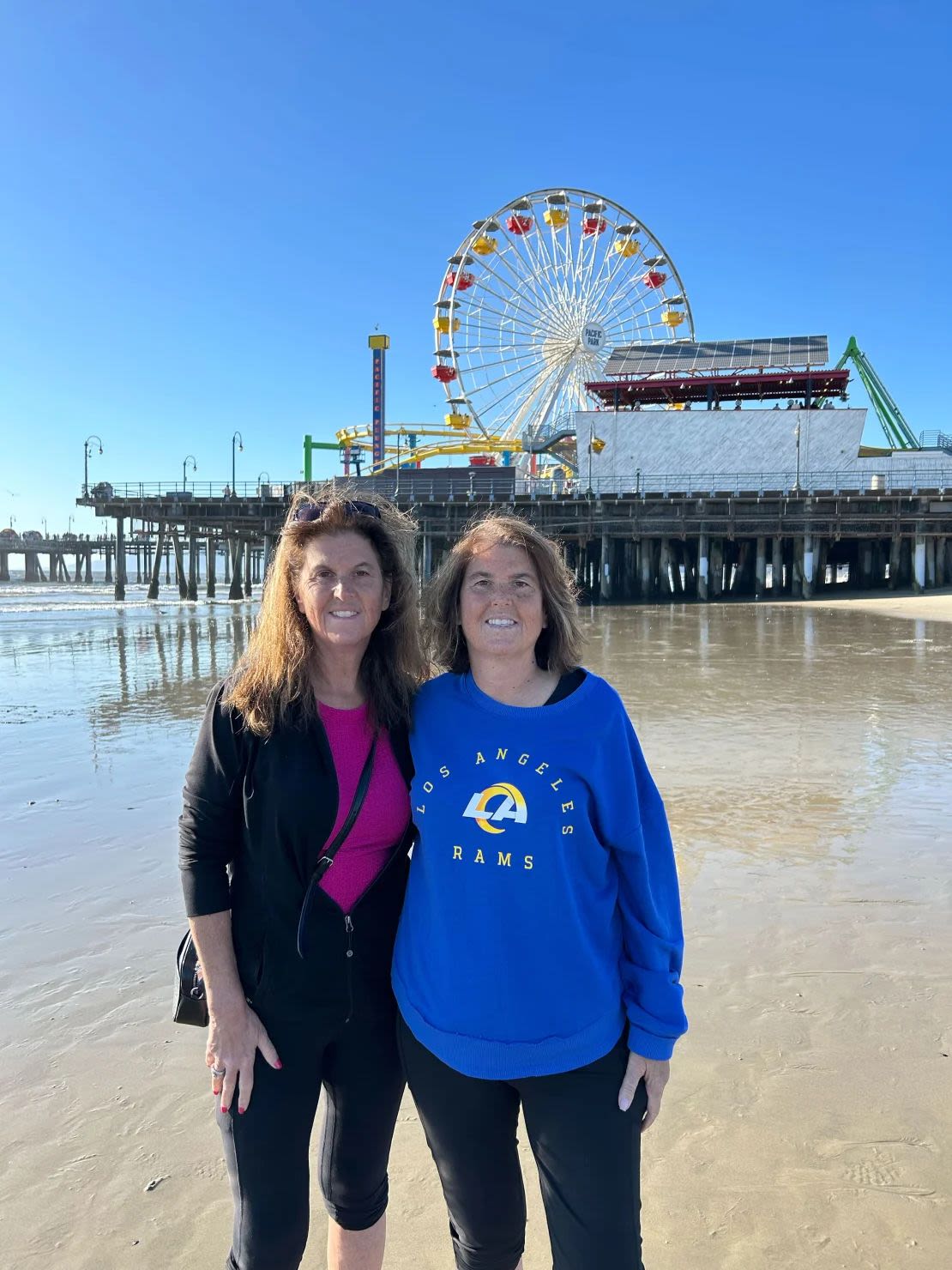()— Identical twins Karen Rodman and Linda Thomas have been inseparable since birth: After all these years, they work together, Rodman as a paralegal and Thomas as a paralegal, finishing each other’s sentences.
Rodman and Thomas live in Las Vegas, less than five miles from each other, and have almost identical phone numbers.
“We’ve always had a very close relationship,” Rodman told . “People always said we were like a single coat of paint.”
As children, they had their tonsils removed on the same day, while they cried and worried about each other.
That anxiety surfaced again recently when Thomas, 56, discovered he needed a kidney transplant.
“There was no conversation,” Thomas told . “She immediately raised her hand and said, ‘She’s got one right here.’ “That was the only conversation.”
Thomas suffered from severe back pain for months before being diagnosed in October 2021 with multiple myeloma, a rare blood cancer that affects plasma cells and can cause kidney failure, according to a Cedars-Sinai Medical Center news releasethe Los Angeles hospital where the twins underwent surgery.
Thomas had an MRI to find the root of his back pain. That’s when doctors noticed “a serious mass,” he said.
At that time, Rodman noticed that his twin sister was not feeling well and was suffering from mental confusion. He took Thomas to the hospital.
“When we got to the ER, they told him his kidneys had completely failed,” Rodman said.
In the months following his diagnosis, Thomas underwent several medical procedures, including chemotherapy, neck surgery and a bone marrow transplant, the hospital said. The cancer also damaged a vertebra in his spine, requiring him to wear a neck brace for more than six months.
Although Thomas’ cancer is now in remission, his kidneys have not regained normal function. A transplant became necessary to prevent him from relying on intravenous fluids or dialysis, according to the release.
“I had already been through a lot,” he told .
Rodman immediately stepped forward and offered to donate one of his kidneys.
“I knew I couldn’t continue with my life without my sister being able to have a better quality of life,” she said.
After several medical tests, the sisters discovered that they were compatible on all markers and were more than 99% identical, according to Cedars-Sinai. Because of these factors, doctors told Thomas that he would not need to take immunosuppressantswhich lower the body’s immune system and are typically used in organ transplants to prevent the recipient’s body from attacking the transplanted organ.
“Some twins don’t turn out to be that compatible,” Thomas said.
“It’s pretty weird,” Rodman added.
While the medical field explores methods of performing transplants without immunosuppressants, such cases remain extremely rare.
Most people who receive a kidney transplant take immunosuppressants for the rest of their lives. Although these medications can lead to side effects such as diabetes, high blood pressure, digestive problems and increased risk of some cancers, skipping them can lead to life-threatening episodes of organ rejection, according to the National Kidney Foundation.
“It is a rare event to transplant a patient with a genetically identical organ because it requires having an identical twin,” said Irene Kim, director of the Cedars-Sinai Comprehensive Transplant Centerwhere the twins underwent surgery.
This was only the second time Kim witnessed a transplant that did not require anti-rejection medications, he said in the statement.
Between 10 and 20% of patients who undergo a kidney transplant, even with anti-rejection medications, will experience at least one rejection, depending on the Columbia University Department of Surgery. Rejection can occur quickly or over years and can be treated, but it can also lead to kidney failure, which could require dialysis or another transplant.

The twins underwent successful surgery in mid-October and Thomas’ kidney began functioning immediately, according to the hospital statement.
“Living donor transplants are always an emotional event filled with stress and gratitude, but the bond Linda and Karen share as identical twin sisters is palpable,” Kim said in the statement. “It was an honor from a transplant surgeon’s perspective to be a part of that.”
Rodman and Thomas remained in California for several weeks so they could be near the hospital for regular visits and could walk on the beach to regain their strength.
Now, the twins are back in Las Vegas and looking forward to their lives ahead.
“I’m so grateful that I was able to go through this with my sister,” Thomas said. “If it had been the other way around, it would have been absolutely the same.”
“We are very looking forward to 2025,” Rodman said. “We have many things to do and life to live.”




![[Img #74675]](https://thelatestnews.world/wp-content/uploads/2024/12/They-discover-a-new-class-of-X-ray-sources-in-the-150x150.jpg)








Add Comment